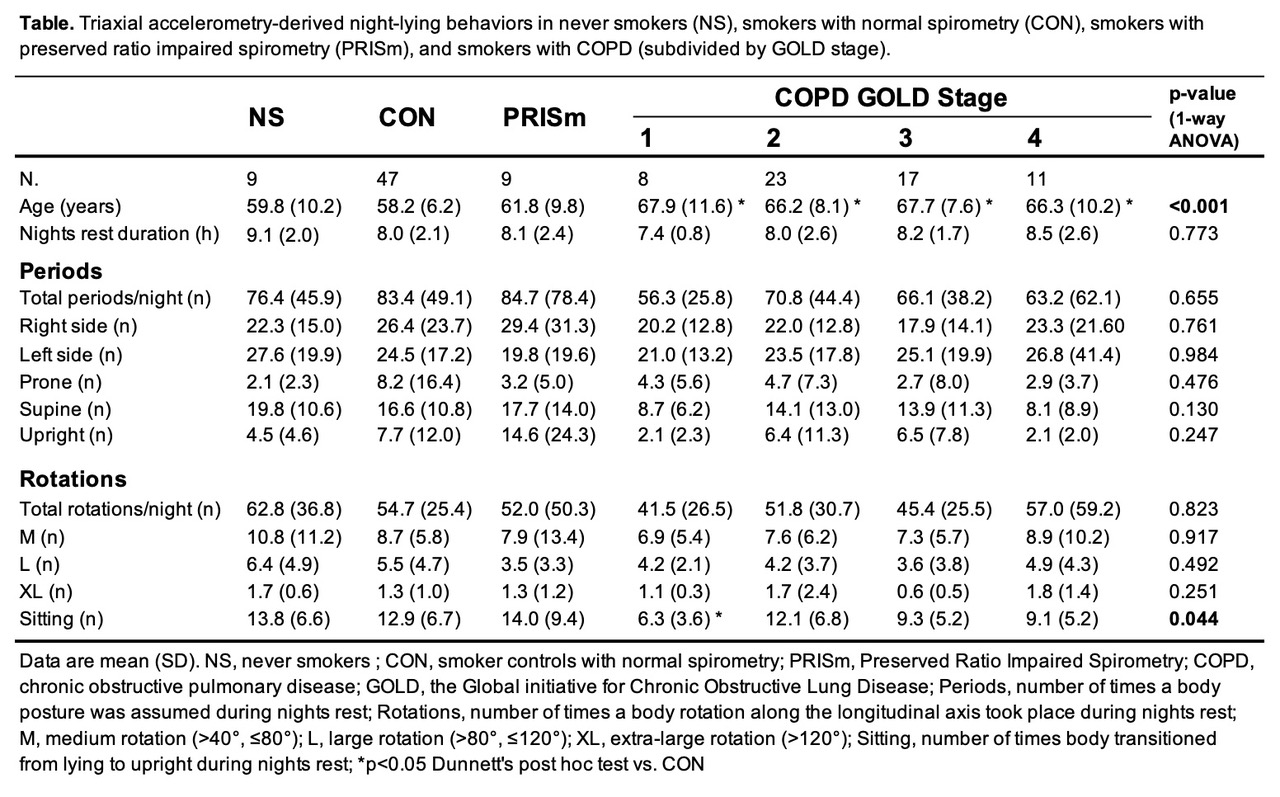Abstract
Introduction Poor sleep quality is common in chronic obstructive pulmonary disease (COPD) and associates with worse quality-of-life. Triaxial accelerometry has high sensitivity and specificity to detect nighttime postural changes in lung disease patients. It is unknown how nighttime postural changes compare in those with and without COPD.
Aim To determine whether COPD have more frequent nighttime postural changes than smokers with normal spirometry (CON)
Methods Nighttime lying behaviors (lying ?3h) were measured by triaxial accelerometry over 4-7 nights. Number of different postures assumed and of longitudinal body rotations were measured. One-way ANOVA with Dunnett?s post hoc test assessed differences among groups with CON as the reference group.
Results 200 Muscle Health Study participants met analysis criteria. 63% (59 COPD; 47 CON; 9 with preserved ratio impaired spirometry, PRISm; 9 never smokers, NS) self-reported disturbed sleep. There were no differences from CON in night rest duration (p=0.773) or number and type of postures or rotations (p>0.13) (Table). These findings did not differ when comparing those who self-reported sleep disturbance to those without.
Conclusion Triaxial accelerometer-derived nighttime postural changes were not associated with self-reported sleep disturbance and not different among smokers with or without COPD, and never smokers.
Funding R01HL151452
